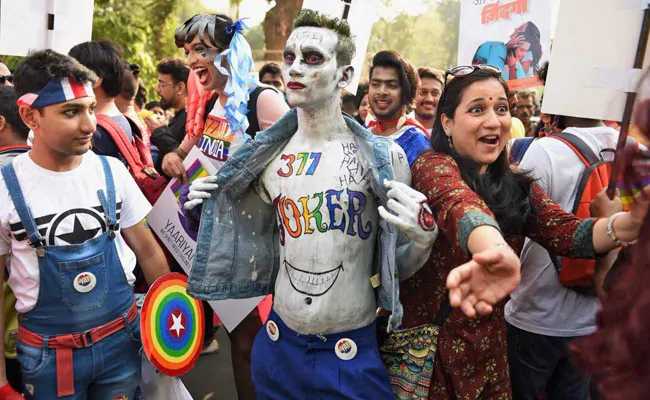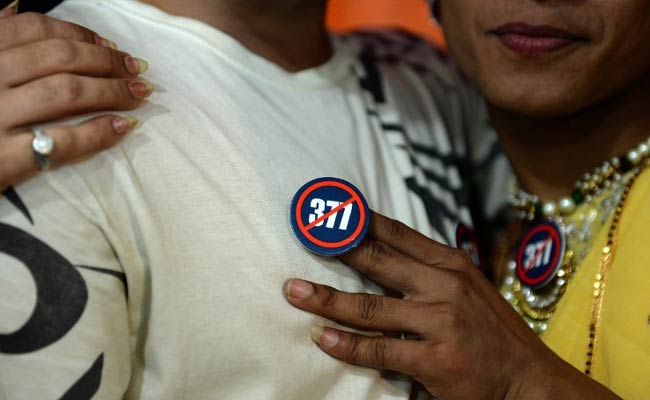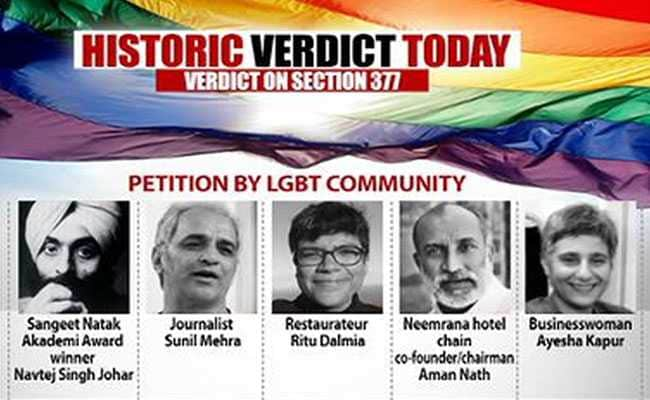In a landmark verdict, the Supreme Court today scrapped the controversial Section 377- a 158-year-old colonial law on consensual gay sex. The Supreme Court reversed its own decision and said Sectuion 377 is irrational and arbitary. "LGBT Community has same rights as of any ordinary citizen. Respect for individual choice is the essence of liberty; LGBT community possesses equal rights under the constitution. Criminalising gay sex is irrational and indefensible," said Chief Justice Dipak Misra, who headed the five judge bench hearing the case.
The judgment was delivered by a Bench of Chief Justice of India Dipak Misra and Justices Rohinton Nariman, AM Khanwilkar, DY Chandrachud and Indu Malhotra.
CJI Misra and Justices Nariman, Chandrachud and Malhotra delivered separate, concurring judgments.
The Supreme Court began hearing petitions against the ban in July, beginning an emotional debate over the right to freedom and privacy. While hearing the case, the judges have made observations that have largely given hope to the gay community.
Section 377 refers to 'unnatural offences' and says whoever voluntarily has "carnal intercourse against the order of nature with any man, woman or animal", shall be punished by up to 10 years in jail under the 1861 law. Although prosecution under Section 377 is not common, gay activists say the police use the law to harass and intimidate members of their community.
Here are the LIVE updates on Section 377:
Today's SC decision is truly historic. It says that the rights which are granted by the Constitution of India are enjoyed by LGBT community as well. It is a day to celebrate. We have won the legal fight, but in society we still have to gain victory: Ankit Gupta, LGBT activist pic.twitter.com/ZmH1lwjiLn
- ANI (@ANI) September 6, 2018
The United Nations welcomed the supreme court order. "Sexual orientation and gender expression form an integral part of an individual's identity the world over, and violence, stigma and discrimination based on these attributes constitute an egregious violation of human rights," the world body said in a statement.
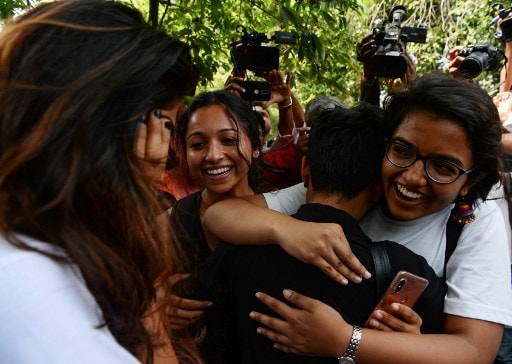
- It is a land mark judgement
- Now sex between two consenting adults of the same sex is not a crime
- LGBT community who have been living under fear of prosecution can now live without fear and stigma
- Justice Indu Malhotra opinion is touchy as she said history owes an apology
We have finally got justice. We are finally 'azaad in azaad Hind': Ashok Row Kavi, LGBT rights activist and founder of Humsafar Trust on Supreme Court legalises homosexuality pic.twitter.com/F2dBq5SLti
- ANI (@ANI) September 6, 2018
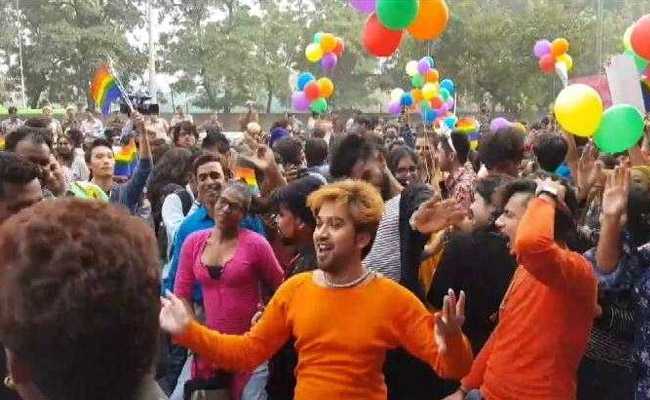
Congratulations to all the activists and petitioners on #SupremeCourt judgement scrapping #Section377 Your perseverance just made #India a freer place for everyone ! #LoveIsLove #Pride #377Verdict #377Scrapped Three cheers for the #SupremeCourt pic.twitter.com/grA64TTB3w
- Swara Bhasker (@ReallySwara) September 6, 2018
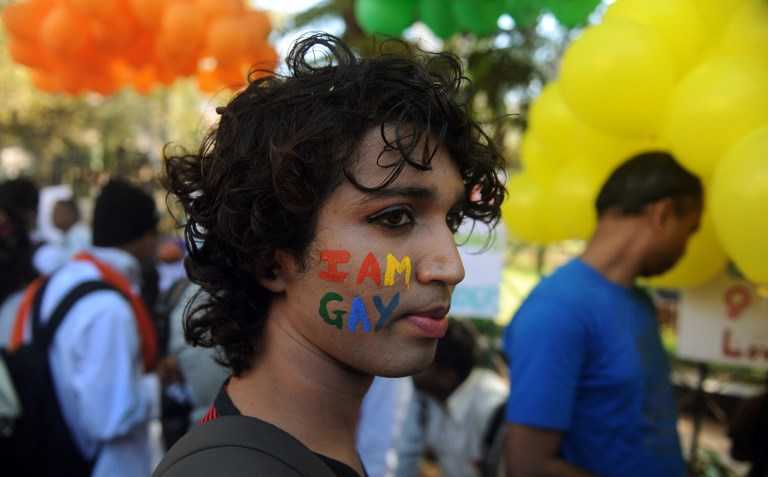
- Sustenance of identity is the pyramid of life
- Section 377 is arbitrary. LGBT community posses rights like others. Majoritarian views and popular morality cannot dictate constitutional rights
- No one can escape from their individualism. Society is now better for individualism. In the present case, our deliberations will be on various spectrums
- To deny LGBT community of their right to sexual orientation is a denial of their citizenship and a violation of their privacy
- Autonomy of an individual is important. He or she can not surrender it to anyone
- Homosexuality is not a mental disorder
#WATCH People in Mumbai celebrate after Supreme Court decriminalises #Section377 and legalises homosexuality pic.twitter.com/ztI67QwfsT
- ANI (@ANI) September 6, 2018
#WATCH Celebrations in Chennai after Supreme Court in a unanimous decision decriminalises #Section377 and legalises homosexuality pic.twitter.com/0dRCLDiBYy
- ANI (@ANI) September 6, 2018
We join the people of India & the LGBTQIA+ community in their victory over prejudice. We welcome the progressive & decisive verdict from the Supreme Court & hope this is the beginning of a more equal & inclusive society. #Section377 pic.twitter.com/Fh65vOn7h9
- Congress (@INCIndia) September 6, 2018
- Primary objective of having a Constitutional society is to transform the society progressively; Constitutional provisions should not be interpreted in literal sense.
- Sexual orientation of an individual is natural and discrimination on the basis of sexual orientation is a violation of Freedom of Expression.
- LGBT Community has same rights as of any ordinary citizen. Respect for each others rights, and others are supreme humanity. Criminalising gay sex is irrational and indefensible.
- The provision of IPC had resulted in collateral effect in that consensual sex between LGBT person is criminalised and is violative of Article 14.
#Section377 in Supreme Court: CJI Dipak Misra observes, "No one can escape from their individualism. Society is now better for individualism. In the present case, our deliberations will be on various spectrums."
- ANI (@ANI) September 6, 2018
Which ever way the Hon'ble Supreme Court decides.. on #Section377
- Rahul Easwar (@RahulEaswar) September 6, 2018
Let us not have
1) #Homophobic attitude
2) Discrimination
We shd hav a genuine
-- Cultural vs Liberal -- debate on this thou without "name calling" anyone.
God bless us all
 5 Petitioners Who Challenged Criminalizing Section 377, Gay Rights: Take A Look
5 Petitioners Who Challenged Criminalizing Section 377, Gay Rights: Take A LookThe Supreme Court today will decide on whether homosexuality is a crime in India. The top court will pronounce its verdict on petitions challenging the colonial-era Section 377 that criminalises consensual gay sex. In 2013, the Supreme Court had cancelled a Delhi high court order that had decriminalized homosexuality, by overturning the outdated law, saying it was up to parliament to take a call on scrapping laws. Five celebrities, in 2016, petitioned the Supreme Court to reconsider its own ruling."
Haters gonna hate. Hang in there and have hope. #Section377 pic.twitter.com/WDJn7YHd3X
- Congress (@INCIndia) September 6, 2018
No matter what #India's Supreme Court decides today, there are many many people we have to be thankful to for bringing us this day of hope. Activists, lawyers, and #LGBT persons who had the courage to speak out and fight discrimination and violence every day. #377 pic.twitter.com/8L1yuF1Mch
- Jayshree Bajoria (@jayshreebajoria) September 6, 2018
Reporters and readers are advises a word of caution on live tweeting of judgments on Section 377, there are four judgements , wait till they are all read out to come to conclusions
- indira jaising (@IJaising) September 6, 2018
Fingers crossed #Section377 https://t.co/pYuETBuD1I
- Ruchi Gupta (@guptar) September 6, 2018
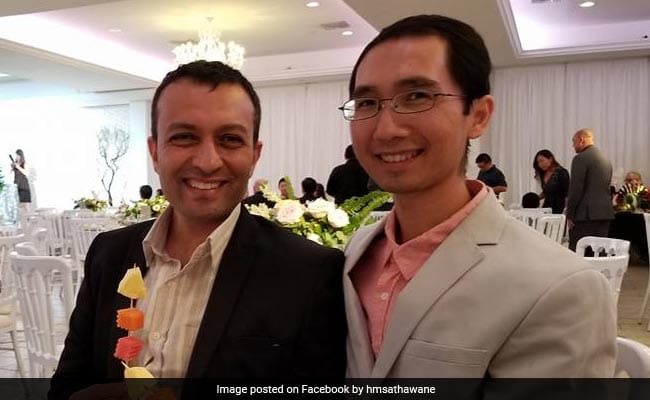
I hope #Section377 is scrapped. Love should have no boundaries. Fingers crossed!
- bhaavna arora (@BhaavnaArora) September 6, 2018
